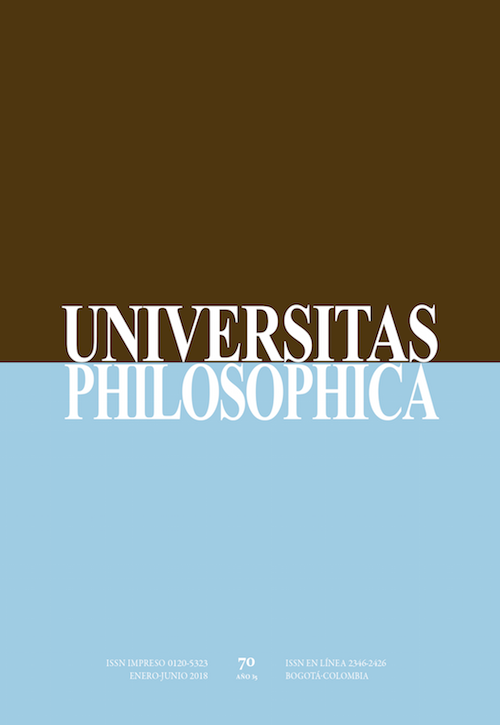Abstract
This article presents a reflection about the different types of phenomenological properties of mental states, also known as qualia. With the objective of identifying the role of qualia in cognition, the qualitative nature of phenomenology is discussed. It is proposed that knowing is a process by which new forms are given to experience through the progressive elucidation of its qualitative properties. Second, the characteristics of two different types of qualia and their roles in cognition are analyzed. A first type, with intrinsically cognitive characteristics, is associated with emotions and other similar states that participate as a center of thought, as a result of their accessibility to self-consciousness. A second type, consisting of perceptual qualia or sensations, corresponds to consciously inaccessible phenomena, and thus plays a representational role that does not depend on its specific qualitative characteristics.
This journal is registered under a Creative Commons Attribution 4.0 International Public License. Thus, this work may be reproduced, distributed, and publicly shared in digital format, as long as the names of the authors and Pontificia Universidad Javeriana are acknowledged. Others are allowed to quote, adapt, transform, auto-archive, republish, and create based on this material, for any purpose (even commercial ones), provided the authorship is duly acknowledged, a link to the original work is provided, and it is specified if changes have been made. Pontificia Universidad Javeriana does not hold the rights of published works and the authors are solely responsible for the contents of their works; they keep the moral, intellectual, privacy, and publicity rights.
Approving the intervention of the work (review, copy-editing, translation, layout) and the following outreach, are granted through an use license and not through an assignment of rights. This means the journal and Pontificia Universidad Javeriana cannot be held responsible for any ethical malpractice by the authors. As a consequence of the protection granted by the use license, the journal is not required to publish recantations or modify information already published, unless the errata stems from the editorial management process. Publishing contents in this journal does not generate royalties for contributors.


